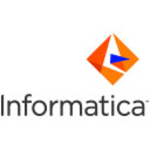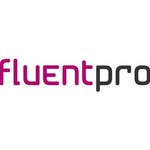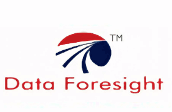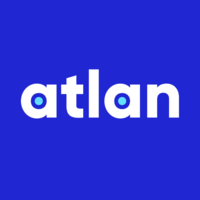What Are The Recent Trends In Data Governance Tools?
As the need to manage and safeguard data grows, data governance solutions have become a crucial part of any business. Organizations are investing in data governance technologies to guarantee the security, integrity, and compliance of their data in light of the growing number of data breaches and compliance rules. Data governance technologies are always changing to stay up with the ever-evolving data management landscape, much like any other technology. Buyers of data governance technologies should be aware of the following current trends:
1. Automation And AI: As data governance grows more intricate and time-consuming, manual procedures become ineffective and prone to mistakes. In order to increase accuracy and streamline procedures, a lot of data governance systems are now integrating automation and artificial intelligence (AI). Data governance technologies with AI capabilities can recognize and categorize data, allocate ownership and access restrictions, and even discover security threats and irregularities.
2. Cloud-Based Solutions: Data governance tools are moving toward cloud-based solutions as a result of the growing volume of data being created and stored in the cloud. By offering improved scalability, flexibility, and cost-effectiveness, these technologies enable businesses to handle their data governance requirements without having to worry about maintaining on-premise infrastructure.
3. Integration With Additional Data Management Tools: Data governance is a component of the broader data management ecosystem rather than an isolated procedure. Therefore, integration between data governance technologies and other data management tools, such data quality, data cataloging, and data lineage, is essential. This connection gives enterprises a comprehensive picture of their data and guarantees a comprehensive approach to data management.
4. Self-Service Capabilities: Data governance technologies are being utilized by a variety of business users to manage and safeguard their data, not just IT teams. In order to enable non-technical users to carry out data governance tasks like data mapping, data profiling, and data quality checks, numerous data governance platforms are including self-service features.
5. Focus On Data Privacy And Compliance: Data governance and compliance are becoming more important due to data privacy rules like the CCPA and GDPR. As a result, adding features and functionalities that assist firms in complying with these requirements is given more attention. This covers features found in data governance technologies including data masking, data redaction, and data anonymization.
Benefits Of Using Data Governance Tools
Organizations of all sizes need data governance technologies because they are vital to data management and security. Having a solid data governance policy is essential for being competitive and compliant in the modern digital environment, when data is ubiquitous and continuously expanding. The following are some of the main advantages of employing data governance tools:
1. Better Data Quality: Data governance tools aid in guaranteeing the accuracy, consistency, and dependability of data. These tools can detect and correct data mistakes, duplicate entries, and other anomalies by defining data standards, policies, and procedures. This guarantees that businesses may rely on reliable, high-quality data when making important business decisions.
2. Increased Compliance: Organizations must make sure that their data is managed in accordance with laws like the California Consumer Privacy Act (CCPA) and the General Data Protection Regulation (GDPR) as data privacy rules get stricter. By offering features like audit trails, data encryption, and access controls, data governance solutions can aid in enforcing compliance.
3. Better Decision-Making: Organizations may have a comprehensive understanding of their data, including its sources, transformations, and uses, with the aid of data governance technologies. This improves company outcomes by empowering them to make better decisions based on current and accurate data.
4. Improved Data Security: Data governance technologies are essential for shielding private information from illegal access and online dangers. To protect data and stop data breaches, they offer features like data masking, encryption, and user access controls.
5. Cost Savings: Inadequate data quality can lead to resource and time waste, which raises operating expenses. Organizations may steer clear of these needless costs and instead fund projects that encourage innovation and growth by managing data quality with data governance solutions.
6. Better Collaboration: Teams from many departments may work together more effectively thanks to data governance technologies, which offer a consolidated platform for data management. This guarantees that all stakeholders have access to the same high-quality data and fosters a culture of data-driven decision-making.
Important Factors To Consider While Purchasing Data Governance Tools?
There are a number of crucial aspects to take into account when investing in data governance technologies. Businesses must implement data governance in order to properly manage and safeguard their data assets, and selecting the appropriate technologies can have a significant impact. Here are some important things to consider before buying to make sure you are spending your money on the finest option for your company.
1. Compliance Standards: Your organization's compliance standards should be the first and most crucial consideration. You might have to follow certain rules and guidelines depending on your industry and the kind of data you handle. Verify that the data governance solutions you are thinking about meet these standards or provide the features you need to remain in compliance.
2. Scalability And Flexibility: Your company's data management requirements will expand along with it. As a result, selecting a data governance platform that is both adaptable and scalable is crucial. It should be flexible enough to adjust to your company's evolving needs and manage an increasing volume of data. To make sure the tool can grow with your company, take into account its capabilities, integrations, and customization choices.
3. Data Security: When it comes to data governance, data security ought to come first. Strong security features should be included in the tool you select to guard against possible intrusions of your data. Regular security updates, access limits, and encryption are all part of this. Asking about the tool's disaster recovery and data backup procedures is also crucial.
4. User-Friendliness: The data governance solution you select should be simple to use and intuitive. This involves thorough user training and assistance in addition to an easy-to-use interface. After all, several employees will use the product, thus it is essential that they can comprehend and operate it efficiently.
5. Data Quality And Governance Features: Ensuring data integrity and quality is the primary goal of data governance. In order to preserve data quality and uphold governance principles, it is crucial to take into account the functions that the tool provides. Data monitoring, data purification, and data profiling are a few examples of this.
6. Integration Capabilities: Your current systems and apps should be able to easily integrate with data governance tools. This lessens the possibility of data silos and guarantees that incompatible technologies won't impede your data governance efforts. Before you buy the tool, think about how well it works with your existing setup.
7. Vendor Reputation And Support: It is crucial to investigate the vendor's reputation and level of support prior to completing your transaction. To gain a sense of the vendor's reputation, think about reading customer reviews and requesting recommendations. Ask about their degree of support as well, including updates, troubleshooting, and training.
What Are The Key Features To Look For In Data Governance Tools?
Effective data governance is becoming more and more important as businesses generate and store more data than ever before. Data governance solutions are essential for assisting businesses in effectively and legally protecting, managing, and using their data. The following are the main characteristics to search for when choosing a data governance technology to purchase:
1. Capabilities For Data Categorization And Tagging: A strong data governance solution should be able to categorize and tag data according to ownership, kind, and sensitivity. Better organization and control over data access and usage are made possible by this.
2. Data Lineage Tracking: It becomes difficult to comprehend the origins of data and its usage in the absence of appropriate data lineage monitoring. To guarantee data quality and compliance, look for a technology that can monitor the complete data flow, from creation to consumption.
3. Management Of Permissions And Data Access: Data governance is all about limiting access to private information. To make sure that only authorized people may access sensitive data, look for tools that provide encryption, data masking, and role-based access control.
4. Data Quality Monitoring: Ensuring data accuracy and integrity is just as important as controlling data access in data governance. To find and fix problems with data quality in real time, look for tools that include monitoring capabilities.
5. Data Privacy And Compliance Management: It's critical to select a data governance platform that can assist you in adhering to data privacy laws like the CCPA and GDPR. Keep an eye out for features like consent management, data anonymization, and privacy impact assessments.
6. Customizable Governance Policies: Your organization's data governance requirements might be different from another's. Seek out solutions that have flexible governance policies so you can modify them to meet your unique needs.
7. System Integration: Since data governance is a complex process, your data governance solution should be able to easily interact with other systems, including business intelligence tools, data analytics platforms, and data warehouses.
8. User-Friendly Interface: Your team can only benefit from a data governance solution if it is simple to use. To make it simpler for everyone to comprehend and apply data governance standards, look for solutions with an intuitive user interface.
9. Scalability: Your data governance requirements will increase in tandem with the volume and complexity of your data. Select a tool that can grow with your company and adapt to your evolving needs for data governance. Q
Why Do Businesses Need Data Governance Tools?
To efficiently handle and regulate the enormous volume of data that they gather, store, and use on a daily basis, businesses require data governance solutions. Businesses need to have the right procedures in place to guarantee the quality, security, and compliance of their data, which includes anything from financial records and customer information to product data and market trends.
1. Simplifying Data Management: Organizations can create uniform and standardized data management practices with the use of data governance technologies. This involves data entry, storage, and retrieval all of which, in the absence of an appropriate system, can frequently become disorganized and unreliable.
2. Ensuring Data Quality: By putting data quality rules and validations into place, data governance tools enable companies to keep an eye on and preserve the quality of their data. This lowers the possibility of mistakes and inconsistencies by guaranteeing that the data is accurate, comprehensive, and trustworthy.
3. Compliance And Risk Management: Data governance tools are crucial for guaranteeing adherence to laws, rules, and industry standards in the highly regulated business world of today. Businesses may reduce the risk of data breaches, fines, and legal repercussions by keeping an eye on data access, usage, and sharing.
4. Analytics And Decision Making: Data governance systems give companies access to a centralized, trustworthy data source, which facilitates analysis and well-informed decision-making. Businesses can find trends, patterns, and insights that can propel their expansion and success when they have access to reliable and consistent data.
5. Transparent And Collaborative Processes: Data governance solutions help companies create a transparent and cooperative data management process that involves several departments and stakeholders. This leads to better data processes and results by encouraging accountability, consistency, and alignment throughout the business.
6. Cost Savings And Efficiency: Data governance technologies can help firms save a lot of money by streamlining data management procedures and cutting down on errors. This entails increasing productivity and efficiency while lowering the expenses related to data upkeep, storage, and cleanup.
Conclusion
To sum up, data governance solutions are essential for preserving an organization's data security, compliance, and integrity. Having a strong data governance plan in place is crucial as businesses continue to gather and examine enormous volumes of data. It's critical to evaluate the unique requirements and objectives of your company before investing in a data governance technology.
To guarantee thorough data governance, look for features like data classification, access controls, and data lineage tracking. To guarantee a seamless deployment and long-term usability, take into account additional elements like user-friendliness, scalability, and integration possibilities. Your company can manage data and make wise decisions by investing in a trustworthy data governance solution, which can ultimately increase productivity, reduce costs, and give it a competitive edge.
We really hope that our buyer's guide has given you insightful information that will enable you to choose the finest data governance solution for your company. Don't forget to carefully consider your options and select a technology that meets the data governance requirements of your business. You can successfully manage and use your data to propel business expansion and success if you have the appropriate instrument in place.






















